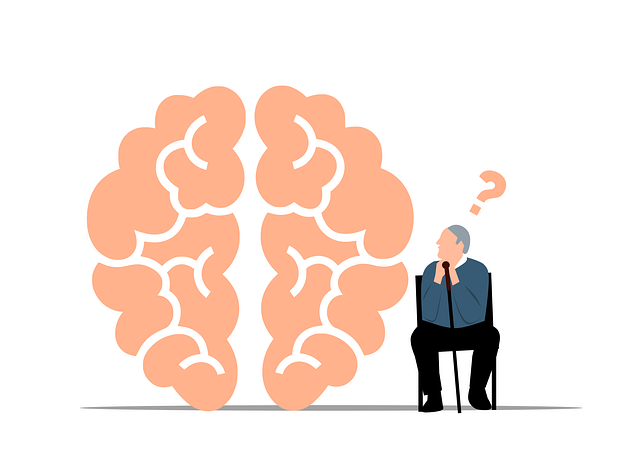Stress is a significant mental health challenge, but effective coping mechanisms like Therapy for Stress Management and Social Skills Training can enhance resilience. Risk Management Planning is crucial for professionals to maintain their well-being. Cognitive Behavioural Therapy (CBT) and mindfulness-based therapies are evidence-based approaches, along with compassion cultivation practices, for stress mitigation. Incorporating these strategies into mental health education reduces stigma. Healthy mindsets through mindfulness, physical activity, nature connection, and social bonds further promote well-being. Burnout prevention for healthcare providers is vital to maintain optimal patient care.
Mental wellness is a vital aspect of overall health, and promoting it involves understanding and addressing stress. This article explores the intricate relationship between stress and mental health, offering insights into its profound impact. We delve into therapeutic approaches tailored for effective stress management, providing practical strategies to foster resilience and cultivate a healthy mindset. By adopting these techniques, individuals can enhance their mental wellness, improve coping mechanisms, and embark on a journey towards a more balanced and fulfilling life. Discover the power of therapy for stress management and embrace a holistic approach to well-being.
- Understanding Stress and Its Impact on Mental Health
- Therapeutic Approaches for Effective Stress Management
- Practical Strategies to Cultivate a Healthy Mindset
Understanding Stress and Its Impact on Mental Health

Stress is a universal experience, but its impact on mental health can vary greatly. It’s crucial to understand that chronic or prolonged stress, often triggered by life events, work pressures, or relationship issues, can lead to significant mental health challenges. This condition is further exacerbated by the lack of effective stress management strategies. Therapy for Stress Management plays a pivotal role in equipping individuals with tools to cope and navigate stressful situations healthily.
Social Skills Training, while not a direct therapy for stress management, fosters resilience by enhancing an individual’s ability to connect, communicate, and support themselves and others during stressful times. Additionally, Risk Management Planning for Mental Health Professionals is essential in ensuring practitioners maintain their own well-being, which indirectly benefits the care they provide. Compassion Cultivation Practices have gained prominence as effective methods to promote mental wellness, teaching individuals to cultivate empathy, kindness, and self-compassion, thereby reducing stress and its associated negative impacts.
Therapeutic Approaches for Effective Stress Management

Stress management is a crucial aspect of mental wellness promotion, and various therapeutic approaches can help individuals cope effectively. One evidence-based method is Cognitive Behavioural Therapy (CBT), which focuses on identifying and changing negative thought patterns and behaviours contributing to stress. CBT equips individuals with practical tools to challenge cognitive distortions, enhance coping strategies, and improve overall emotional resilience.
Additionally, mindfulness-based therapies have gained prominence for their effectiveness in managing stress. Mindfulness practices encourage individuals to stay present, observe thoughts and emotions without judgment, and cultivate a sense of calm. These techniques can be integrated into daily routines, promoting better stress awareness and regulation. The design of mental health education programs should incorporate such strategies, alongside risk assessment tools for professionals, to foster a comprehensive approach to stress management and Mental Illness Stigma Reduction Efforts.
Practical Strategies to Cultivate a Healthy Mindset

Cultivating a healthy mindset is an essential aspect of mental wellness promotion. One effective strategy is incorporating daily practices that reduce stress and enhance resilience. Simple yet powerful techniques, such as mindfulness meditation and deep breathing exercises, have been shown to significantly lower anxiety levels and improve overall well-being. Engaging in regular physical activity, connecting with nature, and fostering strong social connections are additional practices that contribute to a positive mental state. These activities not only provide an outlet for stress relief but also help build inner strength and promote a sense of balance.
For healthcare providers, burnout prevention strategies are crucial. Balancing work and personal life, setting clear boundaries, and prioritizing self-care are key components in maintaining professional resilience. Additionally, incorporating the mind over matter principles into daily routines can empower individuals to reframe challenges as opportunities for growth, fostering a more optimistic outlook and overall mental wellness.
In light of the above discussions, it’s clear that mental wellness promotion is a multifaceted endeavor. By understanding stress and its impact on mental health, we can leverage therapeutic approaches like therapy for stress management and practical strategies to cultivate a healthy mindset. Incorporating these techniques into our daily lives can significantly enhance overall well-being, making it crucial for individuals to prioritize mental wellness as an integral part of their overall health routine.









